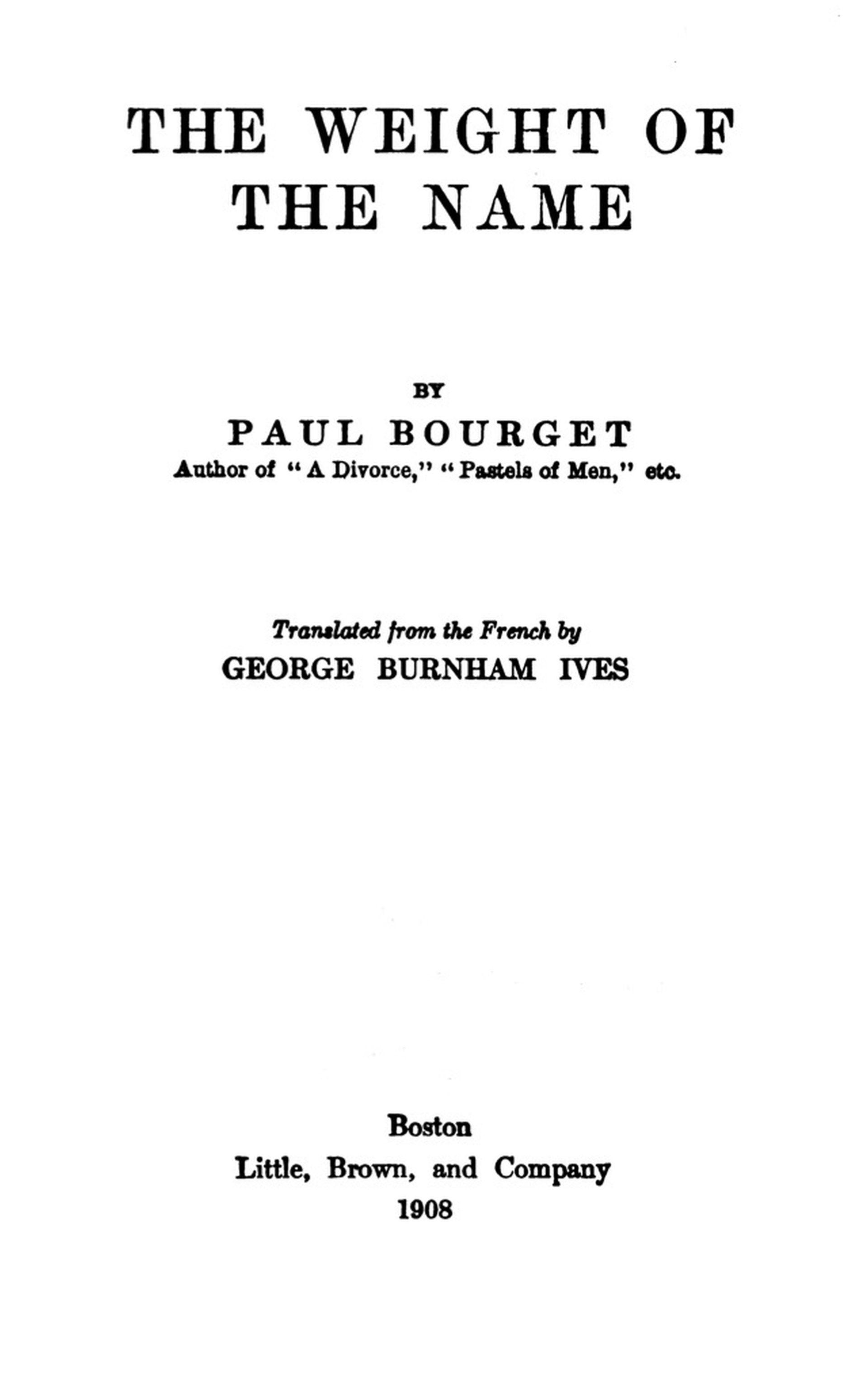
THE WEIGHT OF
THE NAME
BY
PAUL BOURGET
Author of "A Divorce," "Pastels of Men," etc.
Translated from the French by
GEORGE BURNHAM IVES
Boston
Little, Brown, and Company
1908
CONTENTS
CHAPTER
I. Landri
II. A Grand Seigneur
III. The Tragic Underside of a Grand
Existence
IV. The Tragic Underside of a Grand
Existence (Concluded)
V. In Uniform
VI. The Will
VII. All Save Honor
VIII. On a Scent
IX. Separation
X. Epilogue
THE WEIGHT OF
THE NAME
I
LANDRI
The automobile turned sharply about the chevet ofSaint-François-Xavier. With an instinctive movement, Landri deClaviers-Grandchamp seized the megaphone. He called to the chauffeur tostop before one of the side entrances. The powerful limousin was stillin motion when he jumped out upon the sidewalk and disappeared withinthe church, to reappear a few seconds later, by way of the main portal,on Boulevard des Invalides. With the elegant and self-assured bearingcharacteristic of Landri, with his charming face, at once soldierly andthoughtful, which a proud, almost haughty mouth, beneath the slightlytawny veil of the mustache, would have made too stern had not the eyes,of a caressing brown, softened its expression, that childlike stratagemcould mean, but one thing,—the desire, to guard from curiosity andcomments a clandestine rendezvous.
It was true, but—a circumstance which would have made the officers ofthe dragoon regiment in which the young count was serving as alieutenant burst with laughter—he had this rendezvous with a womanwith whom he was madly in love without having ever obtained anything fromher. What do I say? He had not even ventured, except on one occasion, tospeak to her of his sentiments.
How many elements in his life had conspired to make him a fop andblasé: that face and that profession, his fortune and his name—one ofthe best in France, which had lacked nothing but the éclat of greatoffices at court! But Landri was born romantic. He was still romantic attwenty-nine. In him, as in the hearts of all genuinely tender-heartedmen, emotion neutralized vanity.
He had met Madame Olier in 1903. That was the name of the woman inquestion, a widow to-day, then the wife of one of his comrades. It wasnow 1906, so that he had loved her for three years. It had never enteredhis head that such perseverance in a dumb and unselfish devotion was adelusion. He thought so less than ever on this warm and, so to speak,languid morning of late November, as he went his way, drawn on, upliftedby a proximate hope.
Although he had reasons for very serious reflection, the air seemedlight to him, his step was buoyant on the sidewalks of that ancientquarter, of which he recognized the most trivial features. Behind himthe dome of the Invalides stamped the gold of it